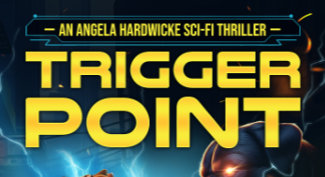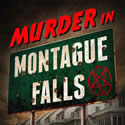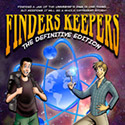Now that I?ve finished Finders Keepers, and the manuscript is channeling through the U.S. postal service on its way to the agent I?ve been telling you about, I thought this would be a good time to look back at really crucial part of the writing process:
When to stop.
Last week I had lunch with an old friend of mine, and were talking a little bit about it, and the thing is, it can be really, really difficult to know just when to be finished with a project. Even though I?ve read Finders Now that I?ve finished Finders Keepers, and the manuscript is channeling through the U.S. postal service on its way to the agent I?ve been telling you about, I thought this would be a good time to look back at really crucial part of the writing process:
When to stop.
Last week I had lunch with an old friend of mine, and were talking a little bit about it, and the thing is, it can be really, really difficult to know just when to be finished with a project. Even though I?ve read Finders Keepers all the way through at least a dozen times, plus read and edited sections another 20 times or so, I can always find something else to tinker with.
As I was telling my friend, I?m sometimes at odds with myself about when I should keep going and when I should do more revisions. Sometimes I think that a section isn?t quite working, and then I look at it the next day and realize it?s good, even great. And sometimes I feel great about a section, and then look at it the next day and realize it needs work. And sometimes a lot of work.
So when should I let it be? When should I get back to it? Not only can I just get too close to the work, sometimes I get tired. I get woozy. I get hungry. When I?m going for hours, or just having a tough day, I?m not always at my peak focus. I’m not concentrating as well as I could. Ideally, every session at the computer would be as good as every other, but I?m human. Sometimes I?m on fire, sometimes I?m not. Which is why I find it so important to stay on a schedule, doing multiple revisions, trusting that, in the long run, I?m getting it right.
I?m sure there are parts of the manuscript that simply aren?t as strong as others, which isn?t to say they?re bad. It?s just that, not every portion can be great. I?d love to say that Finders Keepers is absolutely perfect all the way through?and hey, maybe it is; it?s a matter of opinion?but no matter how many times I?ve said to myself, [i]okay, that?s a wrap. I?m finished[/i], I would inevitably look back at a section and think, [i]oh, boy, that?s not quite right. I just need to change this a little bit …[/i]
This can go on forever and ever and ever. At some point, as a writer, you just have to decide to be done.
Take George Lucas, for example. I won?t rehash all of the re-issues he?s done on [i]Star Wars[/i] over the years, but I can relate to his desire to fix what he thinks isn?t quite right. What could be better. And I?m not saying it?s right or wrong to go back and release newer versions of and older work, but think of it from the creator?s point of view. You spend months, years and sometimes even decades working on something, and you?ve released it to the world. But then you start obsessing on all the imperfections and think, I know how to fix this. All I have to do is …
So, yeah, it can be tough to know when to stop. There?s always some part of a project that could be better in one way or another. Sometimes it?s easier than others to know when to keep going, but sooner or later you just have to move on with your life, and trust that the work you did is good enough.
Post edited by: rcolchamiro, at: 2008/02/28 17:27





